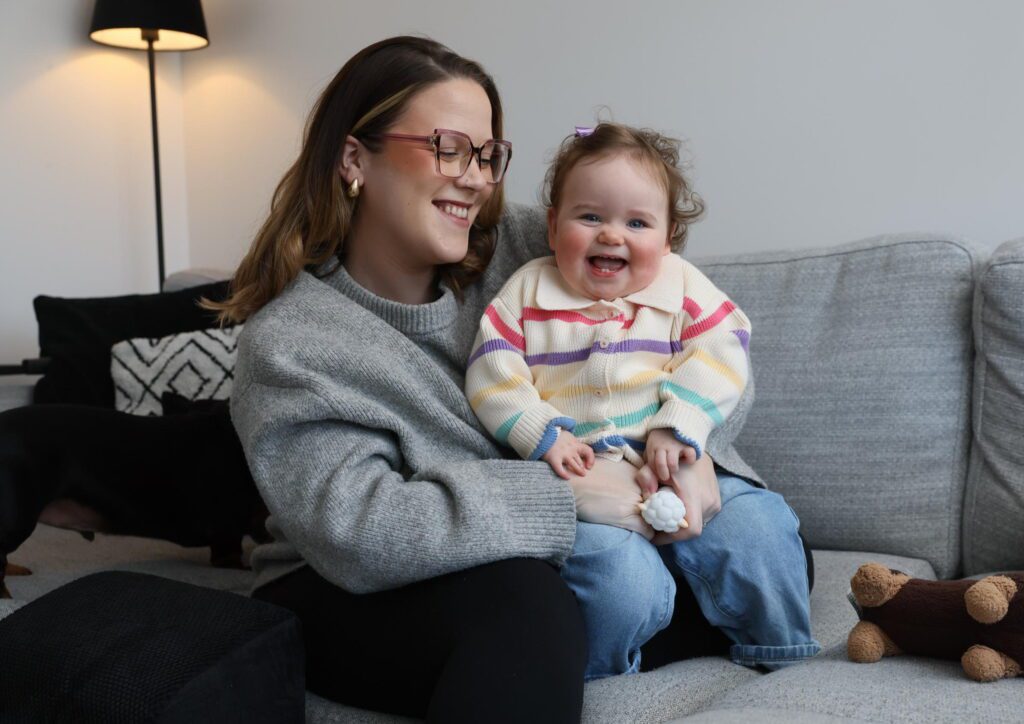A Mother’s Journey Through Postnatal Depression
Victoria Hewitt, a 30-year-old art teacher from Cambuslang, Scotland, found herself in a deeply challenging situation after becoming a mother for the first time. What was supposed to be an exciting new chapter in her life turned into a nightmare due to postnatal depression. She described feeling completely detached from her newborn daughter, Hallé Cassidy Hewitt, and struggling with intense emotions that left her feeling like a “shell” of herself.
Victoria had initially been excited about motherhood, but the experience of a traumatic birth left her emotionally shattered. She underwent an emergency C-section when the baby became stuck, which led to a lack of bonding time immediately after the delivery. This difficult start, combined with hormonal changes, triggered severe postnatal depression. The condition brought with it a range of symptoms, including suicidal thoughts, extreme low moods, panic attacks, and even psychosis in some cases.
She recalls the overwhelming sense of detachment: “I felt like I was trapped in a nightmare. I was aware there would be a hormone shift after birth but I never thought it would take everything from me.” At one point, Victoria was so overwhelmed that she could not even take a bath without someone checking on her. Her husband, Paul, had to hide all the painkillers in the house because of her emotional state.
Postnatal depression affects more than one in every 10 women within a year of giving birth, and it can also impact fathers and partners. While the causes vary, stressful events or psychological trauma often play a role. For Victoria, the difficult birth and the subsequent separation from her baby were significant contributing factors.
The situation reached a critical point less than a month after Hallé was born, leading to Victoria’s hospitalisation. Initially hesitant, she eventually accepted support at Leverndale Hospital’s Mother and Baby Unit. There, she began to receive mental health care and worked with nursery teachers to learn how to bond with her child. Over time, she started to feel better and regain a sense of control over her life.
Victoria shared how the experience changed her perspective: “My family encouraged me to stay at the hospital, it sounded like my worst nightmare at first. I wanted to escape and this was the opposite, but I knew I couldn’t live like that anymore.” As she progressed, she began to take more responsibility for Hallé and found joy in being a mother.
Her journey was not easy, but she eventually found her “pink back,” as she puts it, referring to the way flamingos lose their pink when they give everything to their babies. Now, at 14 months old, Hallé is a source of immense pride for Victoria. She is even expecting her second child, something she once thought impossible.
Through sharing her story, Victoria hopes to break down the stigma surrounding postnatal depression and offer support to other parents facing similar challenges. She recalls feeling isolated when she saw other mothers on social media living what seemed like perfect lives. “I felt so much pressure, everyone was just falling in love with their babies right away and I was not feeling how I should. I thought I was selfish and the only person this happens to.”
After recovering, Victoria began posting about her experience and received messages from many other parents who felt the same way. “If you looked at their pictures you never would have thought they were struggling,” she said. Her goal is to keep the conversation going and show others that they are not alone.
Victoria believes open discussions about postpartum depression are essential. “We need to have more conversations about it, it could save mothers.” Her story is a powerful reminder of the importance of seeking help and breaking down the barriers that prevent people from getting the support they need.


